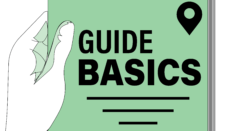Both record and record are two existing words in the Dictionary of the Royal Spanish Academy. The two words are verbs in the infinitive of the first conjugation (ar), both regular. They sound very similar but their meaning is totally different, they correspond to different actions. It is not the same to record a song, to engrave your name on a medal, than to encumber a property with a certain restriction on its domain. We will clarify this in detail later. we will teach you and give examples so that you know the difference between recording and recording, when you can use each one without making mistakes.
we will teach you and give examples so that you know the difference between recording and recording, when you can use each one without making mistakes.
When you understand the difference well, you should practice writing sentences in which the verb is in different contexts to know how to choose the right one: record or record.
In this article we will also give you an exercise to practice with disordered responses so that you can self-assess yourself.
What do you need
- Pencil, paper.
- Lots of reading books, magazines and newspapers.
- Computer with Internet connection to find exercises.
Instructions
- When we talk about the verb record, with “b” we refer to actions such as:
- Make an incision or mark with a sharp object on a moderately soft material, such as wood, copper, fresh cement, etc. forming figures, names etc. For example:
- The young man engraved the image of his love on the tree in front of his house.
- The painting looked splendid in the room, the author’s name seeming to be engraved on the dark wood.
- It also refers to the action of recording sounds, images, videos, music, movies in a suitable support to store it and then be able to reproduce it. For example:
- The singers recorded the new album that was all the rage in their country.
- If you record the Word document periodically, you will never lose what you wrote and thus save your time.
- The DVD contained important information that they recorded at just the right time.
- Also recording is the action of fixing in the mind or in the memory of a person some transcendental fact for him.
- The memory of that man was always engraved in the memory of the harassed woman.
- Her father’s words were burned into her mind, which prevented her from being able to make a decision on her own for the rest of her life.
- On the other hand, the verb to tax, with “v” has a totally different meaning. It means to impose a burden on something, for example, apply a tax or an economic obligation on something that is owned. For example:
- The government levied a new tax on luxury items brought in from abroad.
- The house we bought last year was encumbered with a mortgage.
- The excessive consumption of water will be taxed with a new tax, this will make people more responsible in this matter.
- In the newspaper I read that they intend to reduce the tax on dairy production, since I know that it is considered a basic necessity.
- To establish this knowledge, we suggest that you complete the following sentences with the verbs record or record conjugated in the corresponding person and tense.
- When we visited the forest we saw many trees sadly ruined by the words ……………………..on them.
- If ………………… the information on a pen drive can be seen on the other computer.
- All the gifts we brought from abroad were ………………….with a rather high tax.
- The government has ………………………… told us that we must pay taxes on time.
- If you go on a trip remember ……………… the photos downloaded from your machine so that you can store them on your computer.
- In that paper I read that the house we wanted to buy was …………………………….with a fairly high tax, maybe we should look for another one.
- Take care of the water because I have seen the news that those who consume more will be harmed because the government will …………………………… with an extra tax, on the other hand, those who consume less will benefit from the reduction of that tax.
- Tomorrow I …………. The silver medals to give to the students on the day of the end-of-year party.
- The words you completed are arranged in the following list: recorded, recorded, recorded, recorded, recorded, recorded, recorded and records.
Tips
- Read whenever you can paying attention to the spelling.
- Look up the unknown words in the dictionary.
- If you make a mistake in writing, repeat the well-spelled word several times and on different days so that it becomes internalized in you and thus you will be able to write it well without thinking and without hesitation.
